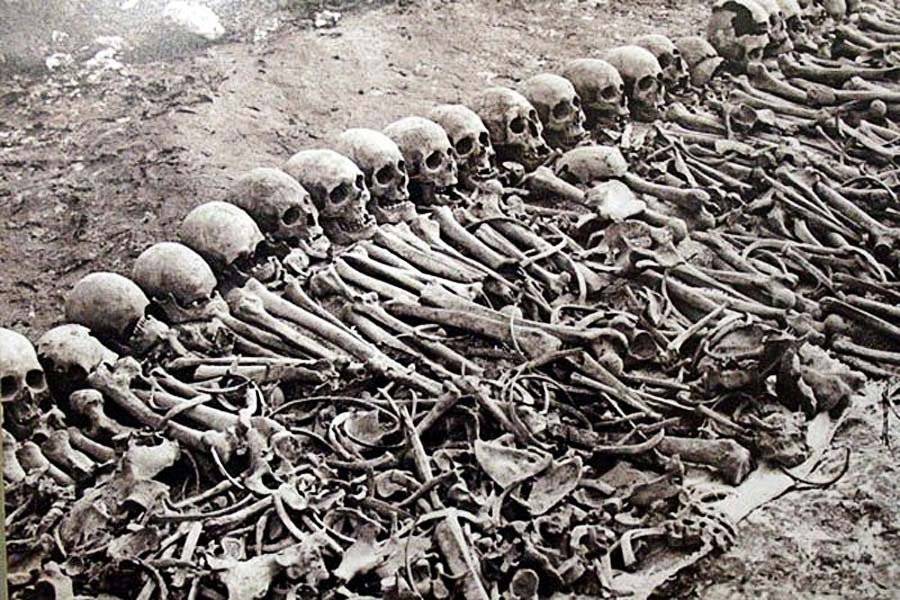Rwanda on Thursday honored politicians from different political parties killed for opposing the genocidal regime during the 1994 genocide against the Tutsi, at the end of the mourning week of the 29th commemoration.
The memorial event was held at the Rebero Genocide Memorial in the Kicukiro district of Kigali, the capital of Rwanda, where wreaths were laid on the graves of 12 prominent politicians. The event was attended by senior government officials led by Francois-Xavier Kalinda, president of the Senate of Rwanda, families of fallen politicians and members of the diplomatic corps, among others.
Speaking at the memorial event, Kalinda hailed the slain politicians for their heroism against the genocidal regime and called for a persistent fight against genocide ideology.
“The politicians were killed for their role in fighting against the genocide targeting the Tutsi population and promoting genocide ideology,” said Kalinda, who also emphasized that the politicians were killed because they refused to accept politics of discrimination and division.
They have become a shining example of politicians who separated themselves from evil and rejected injustice among Rwandans, said Kalinda.
“The denial and trivialization of the Genocide Against the Tutsi, as well as the persistence of the ideology of genocide, are still prevalent. Those who participated in the Genocide against the Tutsi are still at large in some countries within the region and in other countries as well,” Kalinda said. “It is imperative that we remember the dark history our country has gone through, and we must not forget the history of the Genocide Against the Tutsi in order to remain united and vigilant in fighting the ideology of genocide in all its forms.”
Kalinda urged the youth to take a proactive role in the fight against genocide ideology, denial, and trivialization that are often spread through social media, news sites, and even letters.
Speaking at the event, Elizabeth Mukamana, spokesperson of Rwanda’s National Consultative Forum of Political Organizations, called on political parties and politicians against divisive politics, and instead to promote unity, peace and reconciliation among all Rwandans.
“We remember and honor the politicians who were killed in the Genocide against the Tutsi because of their political views, rejection of injustice, and unwavering determination to fight against the genocidal regime,” she said.
Mukamana emphasized that current and future politicians have the responsibility to continue training members of political parties and other Rwandans in general, to live in peace and strengthen the unity of Rwandans.
The remains of more than 14,400 genocide victims are buried at the Rebero memorial site.
While the official mourning week closed Thursday, genocide commemoration activities will continue until July 4 to mark the 100-day calamity, during which more than 1 million people, mainly Tutsi, were killed. Enditem




No comments yet
Be the first to share your thoughts!